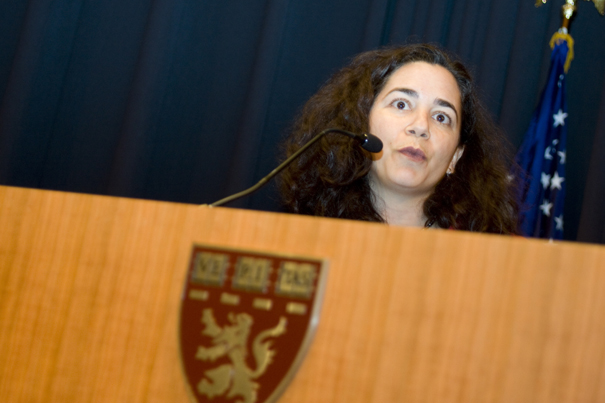Health
-
Lin Test
text with link. This is a quiz. Some text Name Name Quo modo autem philosophus loquitur? Tecum optime, deinde etiam cum mediocri amico. Invidiosum nomen est, infame, suspectum. Name Name…
-

Gender-affirming care is rare, study says
Fewer than 1 in 1,000 transgender youth receive hormones or puberty blockers

-

Nature offers novel approach to oral wound care
Slug’s sticky mucus inspiration behind adhesive hydrogel that can seal wounds in wet environment

-

Time for a rethink of colonoscopy guidelines?
Change informed by new findings would help specialists focus on those most at risk, researcher says

-

Should pharmacists be moral gatekeepers?
‘The problem is not opioids,’ says author of ‘Policing Patients’ — it’s overdose, pain
-

The deadly habit we can’t quite kick
Actions by tobacco companies worry researcher even amid ‘dramatic decrease’ in smoking among young Americans

-
Spinal fusion protein associated with complications, higher costs
In the United States, back pain continues to be a leading cause of disability and one of the most common reasons to see a physician for evaluation. Among various treatment…
-
Low blood sugar in hospital linked to higher death risk
Harvard researchers at Brigham and Women’s Hospital (BWH) found that diabetics hospitalized for noncritical illnesses who develop hypoglycemia (low blood sugar) during hospitalization have an increased likelihood of remaining hospitalized…
-
AIDS research symposium details advances
Harvard AIDS researchers detailed recent advances in the fight against the ongoing global pandemic, including new vaccine strategies, insights into the disease’s progression in the world’s hardest-hit regions, and new knowledge about the body’s immune response against infection.

-
Safer stem cells for therapy
When stem cell researchers in Japan and the United States announced in 2007 that they had developed long-sought methods to return fully developed adult human cells to an embryonic-like state, the world of stem cell research was turned upside down.
-
Study pinpoints novel cancer gene and biomarker
Dana-Farber Cancer Institute scientists’ discovery of a cancer-causing gene – the first in its family to be linked to cancer – demonstrates how the panoramic view of genomics and the…
-
A urine test for appendicitis?
Harvard researchers at Children’s Hospital Boston have identified a protein in the urine of appendicitis patients that they believe may provide the basis of a quick, noninvasive, accurate, and inexpensive test for the common condition.
-
Common ECG finding may indicate serious cardiac problems
A common electrocardiogram (ECG) finding that has largely been considered insignificant may actually signal an increased risk of atrial fibrillation (a chronic heart rhythm disturbance), the future need for a…
-
D. Mark Hegsted, national force in science of human nutrition, dies
D. Mark Hegsted, who was instrumental in the development of the federal “Dietary Guidelines for Americans,” died Tuesday, June 16, 2009, at the age of 95 at a nursing center…
-
Computer scientists model cell division
Computer scientists at Harvard have developed a framework for studying the arrangement of tissue networks created by cell division across a diverse set of organisms, including fruit flies, tadpoles, and…
-
Individual primates display variation in general intelligence
Scientists at Harvard University have shown, for the first time, that intelligence varies among individual monkeys within a species – in this case, the cotton-top tamarin.

-
Search for new tuberculosis drugs outlined
A new drug candidate that attacks the cell walls of tuberculosis bacteria offers a promising alternative in the fight against a disease that has been resurgent in the global age of AIDS, according to findings highlighted by a key researcher Friday (June 12) at the Broad Institute of Harvard and MIT.
-
Researchers learn how mutations extend life span
In the sense that organisms existing today are connected through a chain of life – through their parents, grandparents, and other ancestors – almost a billion years back to the…
-
After a century, link between chromosomal instability and centrosome defects in cancer cells is unraveled
In a new study, Dana-Farber Cancer Institute scientists disprove a century-old theory about why cancer cells often have too many or too few chromosomes, and show that the actual reason…
-
AML patients benefit from stem cell transplants
A stem cell transplant (SCT) from a compatible donor early in the course of disease is the best approach for the majority of young and middle-aged adult patients with acute…
-
Mobile health van returns $36 for every dollar invested
Researchers from Harvard Medical School (HMS) have developed a prototype “return on investment calculator” that can measure the value of prevention services. Using a Boston-based mobile health program called the “Family Van” to test the tool, the team found that for the services provided in 2008, this program, in the long run, will return $36 for every dollar invested.
-
Researchers solve ‘bloodcurdling’ mystery
By applying cutting-edge techniques in single-molecule manipulation, researchers at Harvard University have uncovered a fundamental feedback mechanism that the body uses to regulate the clotting of blood. The finding, which…
-
Shining light on leptin’s role in brain
In investigating the complex neurocircuitry behind weight gain and glucose control, scientists have known that the hormone leptin plays a key role in the process. But within the myriad twists…
-
How growing cells move together
Our cells are more than inert bags of proteins and genes whose complex signaling networks confound the world’s most powerful computers. They also have a physical side whose brawny feats…
-
Video can help patients make end-of-life decisions
Viewing a video showing a patient with advanced dementia interacting with family and caregivers may help elderly patients plan for end-of-life care, according to a study led by Massachusetts General…
-
DFCI cancer research highlights age-related treatment effectiveness, patient cost concerns
New research from the Dana-Farber Cancer Institute highlights age-related responses to colon cancer treatment and patient attitudes toward cost of drugs to manage side effects. Research presented at the American…
-
Chemical leaches from plastic drinking bottles into people
A new study from Harvard School of Public Health (HSPH) researchers found that participants who drank for a week from polycarbonate bottles, the popular, hard-plastic drinking bottles and baby bottles, showed a two-thirds increase in their urine of the chemical bisphenol A (BPA).

-
Acid-suppressive medicines increase pneumonia risk for hospital patients
Ever since a class of drugs called proton pump inhibitors was introduced to the market in the late 1980s, the use of these acid-suppressive medications for heartburn, acid reflux, and other gastrointestinal symptoms has grown tremendously. The widespread use has extended to the inpatient hospital setting, where patients are often routinely given the medications as a way to prevent the development of stress ulcers.
-
Brigham face transplant recipient goes home
James Maki, a 59-year-old who became the nation’s second face transplant recipient in April to repair injuries from a horrific subway accident, left Brigham and Women’s Hospital on Thursday (May 21), thankful for what he called a “new chance to build my life.”
-
Evolution explored from all angles
From humanity’s close relationship to chimpanzees to the missing link between land and sea creatures, the Harvard Museum of Natural History (HMNH) has capped off a year celebrating Darwin and “On the Origin of Species” with a new exhibit that puts evolution front and center.
-
Biology department evolves at FAS
Earlier this month, the Faculty of Arts and Sciences (FAS) made official what scientists worldwide have known for years: Harvard is a hotbed of research and teaching in the field of human evolutionary biology — the study of why we’re the way we are.
-
‘Super-recognizers’ never forget a face
Some people say they never forget a face, a claim now bolstered by psychologists at Harvard University who’ve discovered a group they call “super-recognizers”: those who can easily recognize someone…
-
‘Super-recognizers’ are the ones who really will never forget a face
Some people say they never forget a face, a claim now bolstered by psychologists at Harvard University who’ve discovered a group they call “super-recognizers”: those who can easily recognize someone they met in passing, even many years later.
-
Patients expect computers to play major role in health care
As President Obama calls for streamlining heath care by fully converting to electronic medical records, and as Congress prepares to debate issues of patient privacy, one question has largely gone unasked: What do patients want?
-
New study assesses quality and cost of care at nation’s hospitals
Costly care isn’t necessarily better care at the nation’s hospitals. New research conducted by a team including Harvard Kennedy School Professor Amitabh Chandra represents one of the first nationwide analyses…
-
Genetic testing for breast or ovarian cancer risk may be greatly underutilized
Although a test for gene mutations known to significantly increase the risk of hereditary breast or ovarian cancer has been available for more than a decade, a new study finds…

